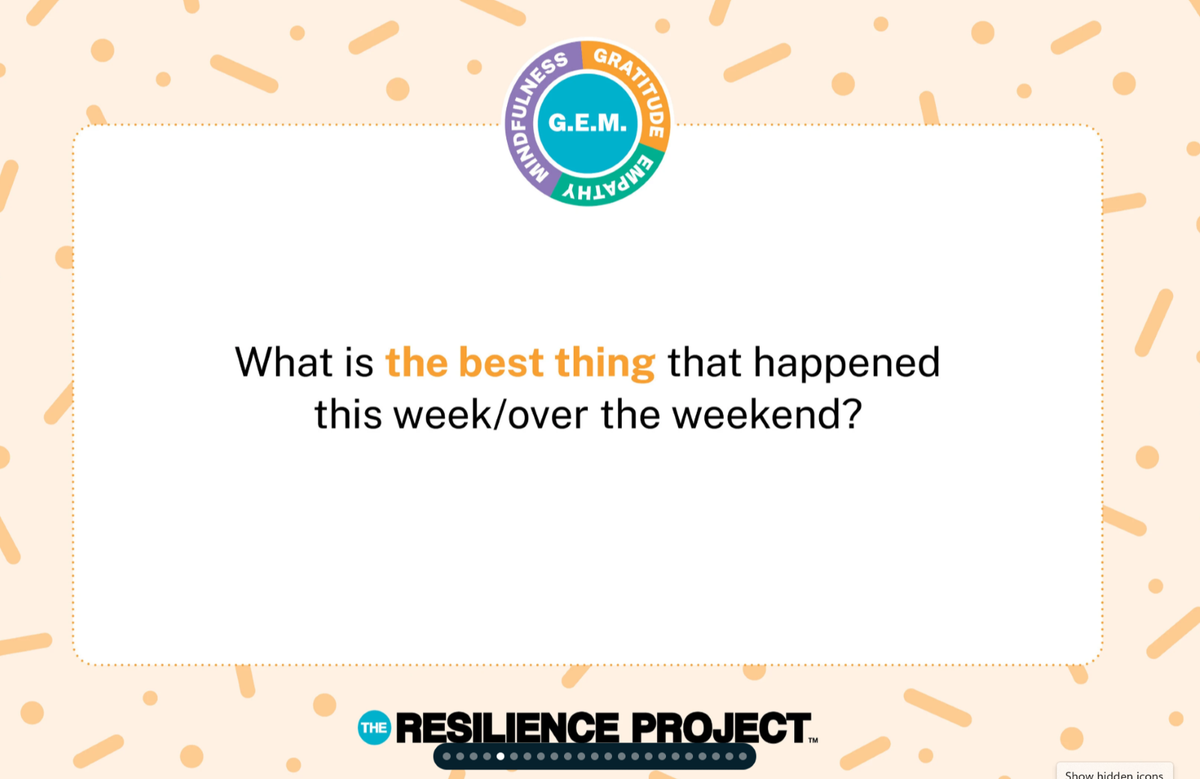GRATITUDE

Students have been learning about the power of gratitude and how it helps shape the way we think and feel. As part of our wellbeing curriculum, we’ve explored an important question: Why does our brain focus on the negatives, and how can we gently train it to notice the positives instead?
It turns out that our brains are naturally wired to scan for problems. This "negativity bias" helped humans survive by staying alert to danger. But in our modern world, it often means we dwell on what went wrong, rather than what went well.
That’s where gratitude comes in. Research shows that practising gratitude doesn’t just make us feel good in the moment – it also changes how our brains work. By regularly focusing on what we're thankful for, we can train our minds to notice more of the positives in our day-to-day lives.
In class, students have been learning to:
- Recognise when their thoughts are stuck on the negatives
- Understand why our brains do this
- Begin practising simple gratitude habits to help shift their focus
One of our favourite activities was “Flip the Focus,” where students took everyday situations and practised finding something positive within them. For example, instead of focusing on losing a game, one student said they were grateful for the fun they had playing with friends.
We’ve also started using gratitude journals and sharing thankful thoughts in class circles. These small but powerful habits help build emotional resilience, empathy, and optimism – skills that are just as important as literacy and numeracy in supporting lifelong learning and wellbeing.
We encourage families to continue the conversation at home by asking, “What’s one good thing that happened today?” You might be surprised by the big impact of this simple daily ritual.
Let’s keep growing grateful minds, together.
DID YOU KNOW....
- In 21 days of practising gratitude, our neural pathways rewire to start scanning the world for more positives. We become three times more likely to notice a positive.
- After 42 days of practising gratitude, we experience significant benefits. We’re less likely to get sick, have higher levels or energy, feel happier, more enthusiastic, focused, determined, optimistic and have better sleep quality. We also have lower levels of depression and anxiety.




